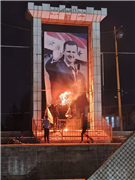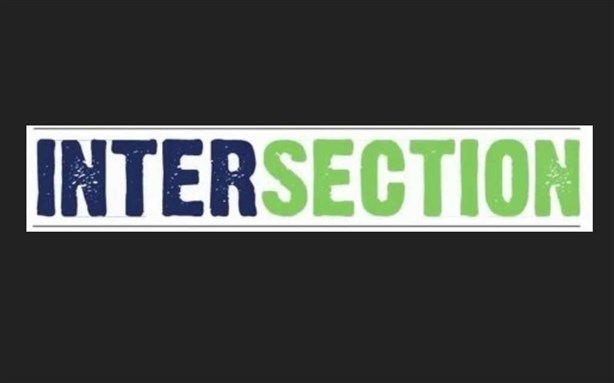This was not meant to happen in this manner. But it did. A twist of circumstances brought Abdul-Qader to my attention a few months ago as I was planning on interviewing Syrians with differing viewpoints. In the end, the other interviewee bailed. What remained is an account by a Syrian activist who is not a typical character.
Though Abdul-Qader and I do not see eye to eye, his approach and attitude were unique, especially considering his past and the torture he endured. As you will learn if you watch this interview, my questions became increasingly more intrusive, but Abdul-Qader kept a cool decorum and maintained his idealism--which is why I insisted on pointing to realities that are not amenable to idealism.
I had written a long introduction, but decided to let viewers navigate the interview without any guidance. Clearly, the "events" are a bit outdated, but the substance is not. This interview was recorded in April 2013 and the circumstances above caused the delay in releasing it.
Below, you can find the list of questions i posed with the time-stamp if you wish to skip around.
Part 1 QUESTIONS AND THEMES
Introduction, Activism and Arrest, and Early Orientation (30 sec)
The Beginning of the Uprisings, and Media Reporting (17:35)
The Militarization of the Uprising (28:45)
Where Did the Funding for the Opposition Come From? (34:48)
Part 2 QUESTIONS AND THEMES
Where did the Opposition Go Wrong From the Very Beginning Until Now, Internally and Externally? (38 sec)
How Did These Mistakes Influence the Transformation of the Uprising And Its Legitimacy?
Did Some of the Relations of the Syrian National Council Undermine the Possibility of Forming A Broader Opposition Coalition? (8:35)
What Is Your Position on the Palestinian Issue and Its Relation to What Is Happening in Syria? (11:00)
Do You See Any Overlap Between Israel`s Interests and What Is Happening In Syria? (14:35)
Is There An Israeli Interest In Weakening the Military Capacity of Syria, Now And in the Future? (15:10)
And Might This Also Influence the Position of Western Governments, Particularly the U.S.? And Perhaps Also the Position of Arab Regional Players Who Are Complicit in Undermining The Foundations of Resistance in the Region?
How Do You View the Role of Minorities in the Current Conflict, Particularly Their Seeming Structural/Strategic Dilemma Regarding Perceived Safety and Principle? (18:45)
How Do You View the Role, Growth, and Predicament of What is Called "Radical Islamic" Groups within the Opposition? (24:25)
There Is a Conception that These Groups Are the Strongest Militarily . . . As Someone Living in Syria, How Do You Interpret All This?
What Is the Status Of the Military Battle on the Ground Now? And How Is it Affecting Ordinary Syrians, Beyond Politics? (31:45)
Is the Syrian Regime Able to Survive? Why? (40:50)
How Can We Explain the Claims that Parts of the Opposition Are Carrying Out Some of these Same Atrocities, Whether They Involve Crime, Killing, Slaughtering, Torture, Stealing, Revenge, and So On? (42:55)
Are You Optimistic or Pessimistic? (45:00)
What Are you Doing Here in America? (45:15)
If You Are Not Hopeful About Your Trip to This Country, Why Did You Come? (46:05)
Do You Think American Foreign Policy Has Common Interests With the Average Syrian? (46:25)
[Thanks to Samia Errazzouki for assisting in the filming process, and to Nir Rosen for referring me to Abdul-Qader]
PART 1
Abdulqader Interview (Part 1) from Jadaliyya on Vimeo.
PART 2
Abdulqader Interview (Part 2) from Jadaliyya on Vimeo.
![[Abdul-Qader al-Dhoun during the interview]](https://kms.jadaliyya.com/Images/357x383xo/abdulqader.png)

















